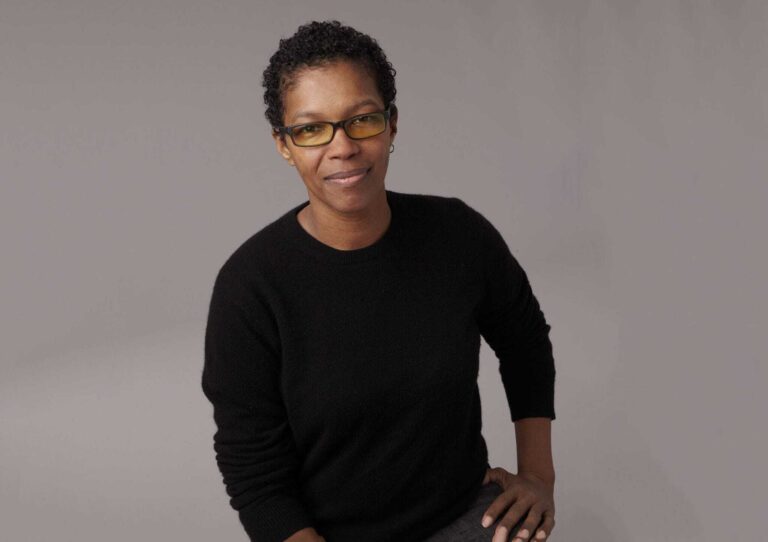A Safe Space in Equanimity
In Buddhist psychology, the word “equanimity” is commonly used to describe the idea of balance. Being able to find equanimity is essential for all of us — particularly when overwhelming emotions arise. A state of equanimity is not one of passivity or indifference, but of space and stillness, as well connection and compassion. It’s an empowered state in which we negotiate understanding with trust, questioning with acceptance.
Reacting rather than taking the time to respond to our experiences is only natural. My fellow columnist, Jane Gross, wrote recently about sweating the small stuff, and so graciously attributed me with a very even temperament. I’ll take this opportunity to say that I get reactive, too! There are airlines galore in my life. And several phone services. And complex human beings.
I do believe that whatever balance I can bring forth is the result of my meditation practice. We are wired toward survival, so if something makes us feel threatened, we want to defend ourselves. Perhaps that means our minds get triggered to figure out what’s going on — what the situation means — and we end up telling ourselves stories fraught with judgments and assumptions.
At times, that means feeling the desire to attack others, or hide. Perhaps that means running away. And if something pleasurable feels precious, we want to protect it. Sometimes that simply means feeling scared of loss. Or it might mean clinging tightly to that which brings us pleasure. But in any and all of these situations, we are operating from a reactive place, where basic survival rather than skillful behavior is our primary concern. It’s human nature, so at the very least, accepting that is the first step toward equanimity.
If we get especially stressed at work because of a demanding boss or an unreasonable deadline, we can acknowledge that we can’t control the uncontrollable. We notice that we’re stressed, we certainly feel the magnitude of the pressure or panic, and we try to see into the intricate corners and crevices of these complicated feelings.
We can choose not to make an enemy of our feelings, as tempting as it may be. Instead, we can choose to expand and allow them to come up. That space brings wisdom that keeps us from getting lost in immediate reactivity.

Our culture conditions us toward extremes. When it comes to feeling painful emotions like anger or jealousy, we typically get lost in our feelings in such a way that they become toxic and seemingly inescapable. We may think there’s no way out, and we come to identify with our feelings completely: I’m an angry person, and I always will be.
On the other hand, we might also feel an impulse toward turning away from tough feelings: to swallow them, deny them, distract ourselves. We don’t have many models for feeling strong emotions in a balanced state.
Equanimity is what frees us from these dynamics. We can learn to be present with emotions without falling into the extremes of overwhelm or denial. Equanimity is the state in which we can recognize an emotion like anger and even feel its intensity, but we also pay attention to our own choice in how we respond to a given feeling, thought, or circumstance. Rather than allowing our minds to spin stories about our life-long anger or inability to cope with the difficulties of life, we can create space for ourselves to feel without drowning in a given feeling. The creation of that space is the essence of equanimity.
Seeing how other people react to a given situation is often a helpful reminder of how much choice there really is for all of us when it comes to how we respond to things.
At a retreat in Ireland, one of my students told a story about a recent transnational trip he and his friends had taken to the United States. On their way home, the plane from Chicago ended up being late, so the man and his friends missed their flight back to Ireland. To make matters worse, the airline lost their luggage. The man and his friends walked to the luggage office, and saw a tired-looking airport employee come out. It was after midnight by this point. “She looked worse than we felt,” the man told our group with a laugh. Noting that the woman’s nametag said “Irene,” the student reached into his carry-on, took out his ukulele, and serenaded the luggage clerk with the song “Goodnight Irene.” She was so touched that she ended up getting the friends a different connecting flight to Ireland, and promised she would personally help locate their luggage.
True confessions, Jane: five days after hearing this story, I was traveling in France, and the airline lost my luggage, despite my having checked three times that it had been transferred. I didn’t have a ukulele, or a desire to serenade anyone. I didn’t even remember this story until later. I did feel impatient and frustrated — very much so. But I also remembered to try to be kind.
Losing my luggage had not been the explicit goal of the airline employee when she woke up that morning, and she was doing the best she could. I thank my years of meditation practice for fostering the space in which I didn’t feel the need to freak out, where some clarity and balance could arise. A three-hour wait and a lovely dinner later, my luggage and I were reunited.

